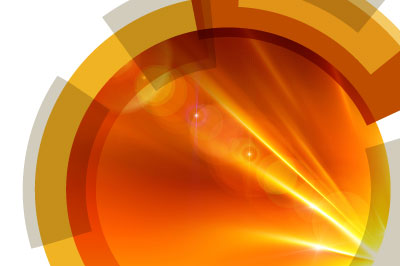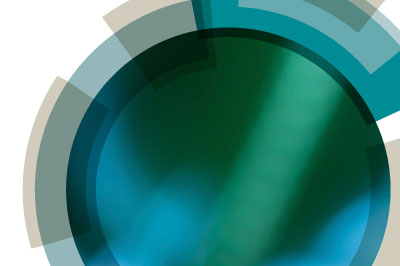Since their inception, optical detection and spectroscopy of single molecules have steadily expanded to an amazing variety of disciplines in natural sciences. Domains as varied as optical microscopy, quantum optics, nanophotonics, material science and soft-matter physical chemistry all have benefited from the new, average-free insights provided by the optical isolation of single molecules, quantum dots, metal nanoparticles, and other nanometre-sized objects.
The techniques themselves have also made spectacular progress with the developments in super-resolution microscopy, time-resolved measurements, absorption-based detection, combination with mechanical or electrical manipulation and recording, live-cell imaging, and metal nanoparticle-enhanced phenomena.
At the chemistry-biology interface, new probes are needed for the study of various biological processes, most of them in live cells or even live organisms, but also for superresolution microscopy. The plasmonics-chemistry interface includes studies of catalysis, diffusion in soft materials and nanofluidics. At the border between quantum optics, plasmonics and physical chemistry, low-temperature spectroscopy experiments provide candidates for the manipulation of single spins as qubits, while new structures can be designed as nanoantennas to enhance molecular fluorescence and a broad variety of nonlinear optical processes.
Faraday Discussions have a special format where research papers written by the speakers are distributed to all participants before the meeting, and most of the meeting is devoted to discussing the papers. Everyone contributes to the discussion - including presenting their own relevant research. The research papers and a record of the discussion are published in the journal Faraday Discussions.
Single molecules have been used for many years as test systems in quantum optics, but the combination with plasmonics opens new routes for enhancement of excitation and emission
Probes and Sensors for Molecular Biophysics
Plasmonic structures can be used as bright and stable labels, as rulers to probe dynamics, or as antennas to efficiently extract information from the nanoscale. These applications are particularly attractive in biophysics.
Superresolution and Imaging of Soft and Biological Matter
Optical microscopy recently underwent a true revolution with superresolution imaging and a broad variety of nonlinear optical imaging modalities. The latter will be discussed in the restricted frame of single molecules and single objects.
Nonlinear optics and Coherence in Biophysics
In relation with the previous subject, tailored light pulses open the way to manipulations of the quantum states of single molecules, and to the exploration of coherent effects in biological processes such as photosynthesis or electron transfer.
Poster Prize Winner
Maurice Lee, Stanford University, USA
The techniques themselves have also made spectacular progress with the developments in super-resolution microscopy, time-resolved measurements, absorption-based detection, combination with mechanical or electrical manipulation and recording, live-cell imaging, and metal nanoparticle-enhanced phenomena.
At the chemistry-biology interface, new probes are needed for the study of various biological processes, most of them in live cells or even live organisms, but also for superresolution microscopy. The plasmonics-chemistry interface includes studies of catalysis, diffusion in soft materials and nanofluidics. At the border between quantum optics, plasmonics and physical chemistry, low-temperature spectroscopy experiments provide candidates for the manipulation of single spins as qubits, while new structures can be designed as nanoantennas to enhance molecular fluorescence and a broad variety of nonlinear optical processes.
Format
The Faraday Division have been organising high impact Faraday Discussions in rapidly developing areas of physical chemistry and its interfaces with other scientific disciplines for over 100 years.Faraday Discussions have a special format where research papers written by the speakers are distributed to all participants before the meeting, and most of the meeting is devoted to discussing the papers. Everyone contributes to the discussion - including presenting their own relevant research. The research papers and a record of the discussion are published in the journal Faraday Discussions.
Themes
Quantum optics and PlasmonicsSingle molecules have been used for many years as test systems in quantum optics, but the combination with plasmonics opens new routes for enhancement of excitation and emission
Probes and Sensors for Molecular Biophysics
Plasmonic structures can be used as bright and stable labels, as rulers to probe dynamics, or as antennas to efficiently extract information from the nanoscale. These applications are particularly attractive in biophysics.
Superresolution and Imaging of Soft and Biological Matter
Optical microscopy recently underwent a true revolution with superresolution imaging and a broad variety of nonlinear optical imaging modalities. The latter will be discussed in the restricted frame of single molecules and single objects.
Nonlinear optics and Coherence in Biophysics
In relation with the previous subject, tailored light pulses open the way to manipulations of the quantum states of single molecules, and to the exploration of coherent effects in biological processes such as photosynthesis or electron transfer.
Aims
The aim of the meeting will be to propose a synthesis of the main advances of the past several years and to map out future avenues at the interfaces between the themes.Poster Prize Winner
Maurice Lee, Stanford University, USA

















